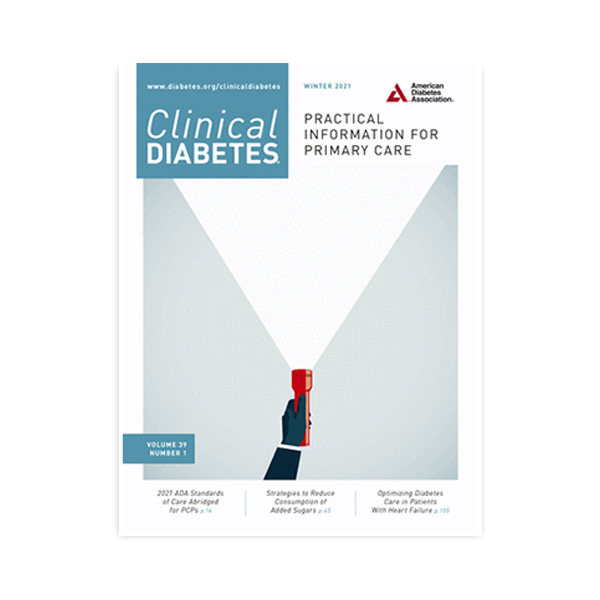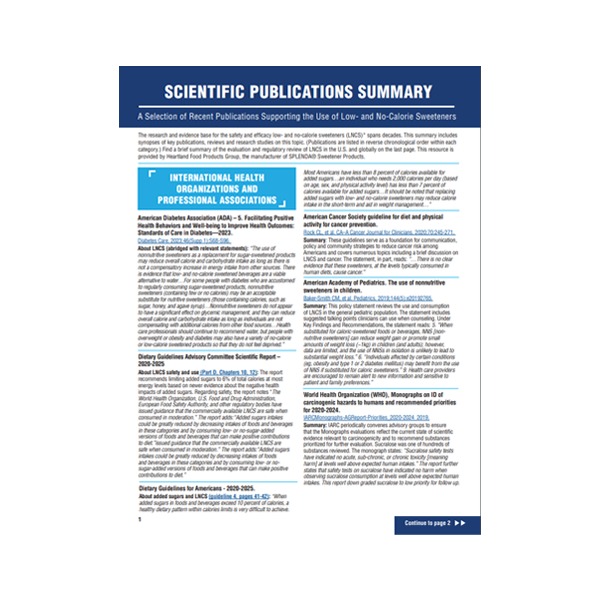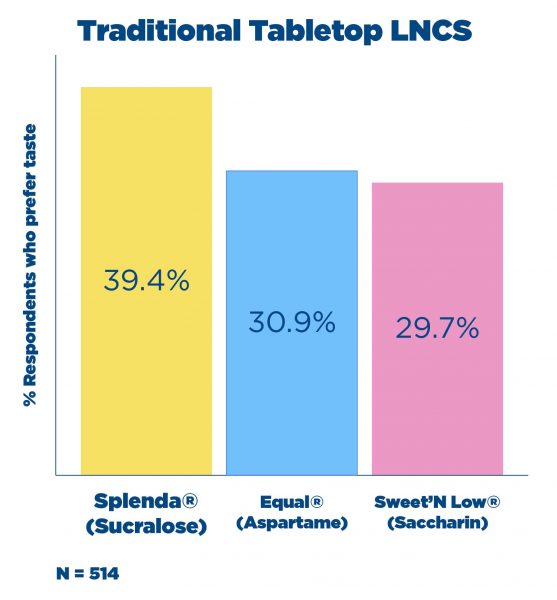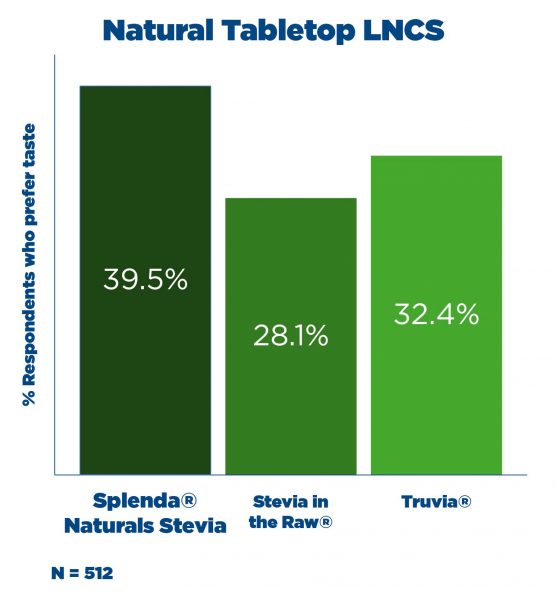
Misconceptions about low or no-calorie sweeteners (LNCS) are often fueled by media headlines from select, poorly designed and controversial studies. Drawing conclusions from such studies, in isolation, is both inappropriate and a major reason for negative headlines about LNCS. While misinformation continues to abound the simple truth is Splenda is safe and has been used by millions of people around the world for the last 30 years. In fact, Splenda is the brand of sweetener recommended most by healthcare professionals. Learn more about how Splenda sweeteners can help serve as the sugar solution for your patients by decreasing unwanted calories from added sugars, without sacrificing taste.
Get the facts about the most common myths related to LNCS and feel confident recommending Splenda as a solution for reducing added sugar intake that doesn’t compromise on taste.
Fact No! Confusion comes from results reported in many observational studies that show an association between LNCS use and weight gain, yet these types of studies commonly misrepresent correlation as a cause and cannot prove cause and effect. Recent studies have shown that enjoying sweet-tasting products, such as those sweetened with Splenda, could decrease the want for additional sweets while also adding variety and flavor to foods and beverages. In turn that can help people manage weight, reduce intake of calories from added sugars, and manage blood sugar levels. 1, 2
Fact No! Questions about artificial sweeteners and cancer risk arose when early studies showed that saccharin caused bladder cancer in lab animals, but studies in humans have shown no increased cancer risk. In 2019 the International Agency for Research on Cancer (IARC) shared that sucralose safety tests indicate no harm when looking at sucralose consumption levels well above what most people would actually eat or drink.1 According to the American Cancer Society, there is no clear evidence that these sweeteners, at the levels typically consumed in human diets, cause cancer.2
Fact No! Early rodent studies and observational investigations have suggested that use of LNCS raises glucose levels, but randomized clinical trials (RCTs) have shown no adverse effect on glucose and insulin regulation.1 The American Diabetes Association (ADA), in its nutrition therapy guidance, recognizes that using low-and no-calorie sweeteners (LNCS) to reduce consumption of added sugars can reduce low nutrient dense sources of calories and carbohydrate to beneficially affect glycemia, weight and cardiometabolic management.2 Splenda is a great option for people with diabetes as it does not adversely affect glucose levels (HbA1c, fasting, postprandial) or insulin regulation in individuals with and without diabetes.3
Fact No! Although studies have reported changes in gut microbiome in rodents, clinically meaningful effects of ingested LNCS on gut microbiome in humans have not been shown. A thorough review in 2019 found no evidence of negative effects on gut health from the use of sweeteners like Splenda. Rather, the investigators reported clear evidence that the changes in food choices, unrelated to LNCS use, are likely the major determinants of changes in gut microbiota.1

Dispels common myths about LNCS and demonstrates that LNCS are safe with no impact to blood glucose, gut health, diabetes or link to cancer. In fact, people managing diabetes, weight and seeking to make healthy lifestyle choices should turn to LNCS like Splenda as a sugar solution that doesn’t sacrifice taste.

Summarizes for healthcare providers the scientific evidence supporting use of LNCS and practical strategies to help people they are counseling make the shift from added sugars to LNCS. Highlights the importance of taste in influencing food choices and demonstrates that Splenda Original and Splenda Stevia are consumer-preferred options.

The safety and efficacy of LNCS have been researched for decades. This summary provides a broad selection of recent and well-designed scientific studies, articles and position statements in addition to a quick summary of the evaluation and regulatory review of LNCS and the U.S. and globally.
Recommending zero calorie Splenda can help patients achieve and sustain their health goals. Switching from caloric sweeteners like sugar, to Splenda helps your patients lose weight2, manage diabetes and blood sugar levels1, and live a healthier lifestyle.
Splenda Original and Splenda Stevia are consumer-preferred options.

